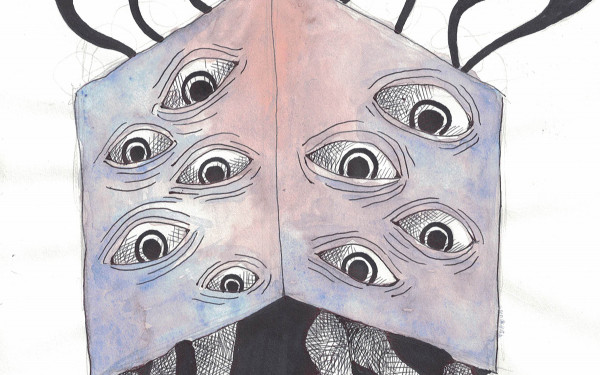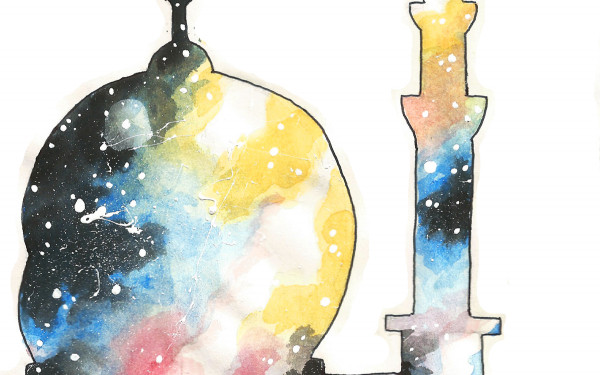A Leap of Faith
Ahmaddi Muslims Seek Asylum in Montreal
Montreal’s only Ahmadiyya Mosque is sandwiched between a bakery and a butcher shop north of the Metropolitan highway.
For the nearly 700 Ahmaddi Muslims that call Quebec home, the modest brick-clad building is a place to practice their religion free from the persecution many faced in their native Pakistan.
The persecution seems to have followed them.
In July, Concordia University’s Pakistani Students’ Association and the Canadian Council for Muslim Women booked Durre Ahmed—a lecturer, author and religious scholar—to speak at Concordia University. A few days before the event, PSA President Yassir Aziz found out Ahmed was an Ahmaddi Muslim.
On Aug. 4, the night before Ahmed’s lecture, Aziz tried to cancel the speech. In an email to Shaheen Ashraf, a board member of the CCMW, Aziz wrote that he had received threatening phone calls regarding Ahmed’s religious faith.
Despite the attempt at a last minute cancellation, Ahmed spoke at Concordia the following day. By the end of the week, two PSA VPs resigned, accusing Aziz of having practiced religious discrimination against Ahmed.
“In a situation like this,” said Naeem Shaheen, president of Concordia’s Ahmadiyya Student Association. “I think we should give [Aziz] the benefit of the doubt. It’s really between him and Allah.”
On Sept. 3, the Concordia Student Union released a statement denying the allegations against Aziz’s. In a letter to The Link, Concordia Student Union President Heather Lucas wrote, “The CSU has no reason to believe that any statements made about Aziz regarding this event are true since he has been transparent in his communications with us from the beginning.”
Saad Sarfraz, one of the PSA VPs who resigned, insists Aziz and many other members of the PSA are prejudiced against Ahmaddis.
“[Aziz] told me Ahmed was an infidel,” he said. “And I received plenty of hate mail [from PSA members] after speaking out against [religious discrimination].”
Sana Khalil, who also resigned from the PSA following the Ahmed speech, also spoke out against religious discrimination. She has since suffered personal attacks from fellow PSA members.
“If there’s one good thing that came out of this situation,” she said. “It’s that we can talk about the discrimination Ahmaddis suffer.”
In Pakistan, the religious freedom of the Ahmadiyya is under siege. Federal law prevents the country’s four million Ahmaddis from calling themselves Muslim, praying outside Ahmadiyya mosques or using the traditional Muslim greeting. Failure to abide by these laws can result in up to three years of imprisonment.
In May, Pakistani suicide bombers entered two Ahmaddi Mosques and killed over 80 people. There have also been reports of Ahmaddis being denied aid during the flooding that devastated Pakistan in July.
There are over 6,000 Ahmaddis currently living in Canada.
“Some come as refugees,” said Shaheen. “Others come just for the opportunity.”
Abdul Rashad Anwar is an Amhadi missionary working in Montreal. Canada, he said, offers Ahmmadis a chance at practising the Muslim faith, something he claims is nearly impossible in Pakistan.
“Because in Pakistan we must identify ourselves as Ahmadiyya on our passports,” said Anwar. “We are not allowed to make the pilgrimage to Mecca, which every Muslim is supposed to make.
“But when we become Canadian citizens,” he continued. “We don’t have our religion stamped into our passport. We are free to enter Mecca.”
Ahmadiyya Muslims believe that Mirza Ghulam Ahmad, an Indian man who lived in the 19th century and founded Ahmaddiya, is the Messiah and redeemer of Islam. This belief is considered heretical by the Pakistani government.
“It’s actually comparable to the differing views Jews and Christians have on Jesus Christ,” said Anwar.
Anwar has been in Montreal for almost two years now. His congregation has raised money for aid in disaster relief in Haiti and is raising money to help the flood victims in Pakistan.
“We are peaceful people and we just want to be a part of this country and help whoever we can,” said Anwar. “We consider ourselves Canadian and are proud to be Canadian. We would gladly fight for this country as it has been so good to us.”
Shaheen has lived in Montreal his whole life. He claims to have rarely been a victim of discrimination from other Muslims. Whether it was a case of threatening phone calls or an individual’s prejudice, he said the attempted speech cancellation is a chilling reminder of the divisions that exist within the Muslim community.
On Sept. 3, Lucas told The Link no action would be taken against the PSA or its president. She expressed a desire to sit down with the parties involved in the PSA conflict.
“I would be open to a conversation [with the CSU and Aziz],” said Sarfraz.
“All we want is to be able to sit down and discuss our differences,” said Anwar. “We always welcome a chance to talk. Not to force our views on anyone, but to have an intellectual discussion about our differences.”
Yassir Aziz could not be reached for comment.
This article originally appeared in Volume 31, Issue 04, published September 7, 2010.

__700_467_90.jpg)

_600_375_90_s_c1.jpg)


